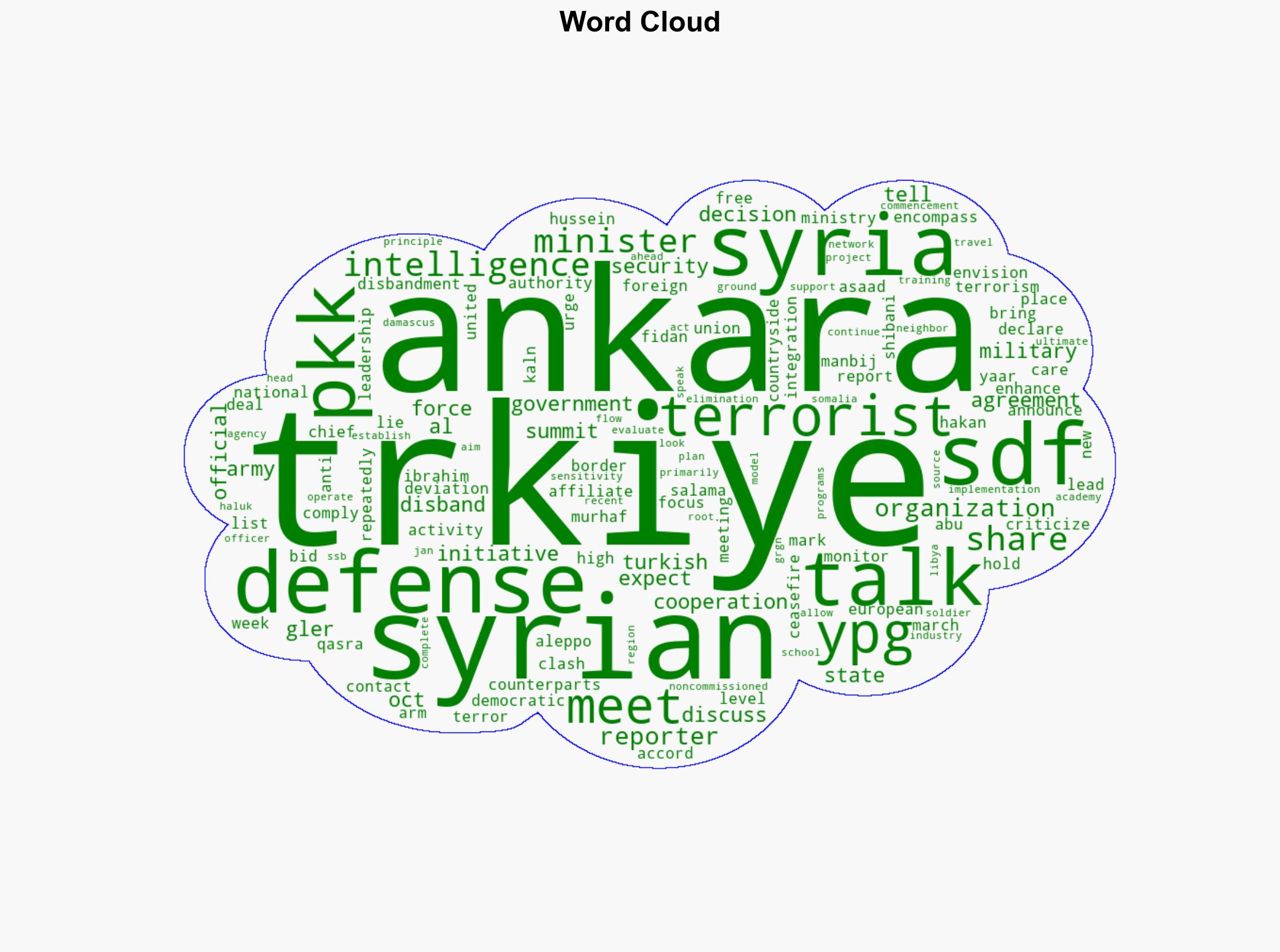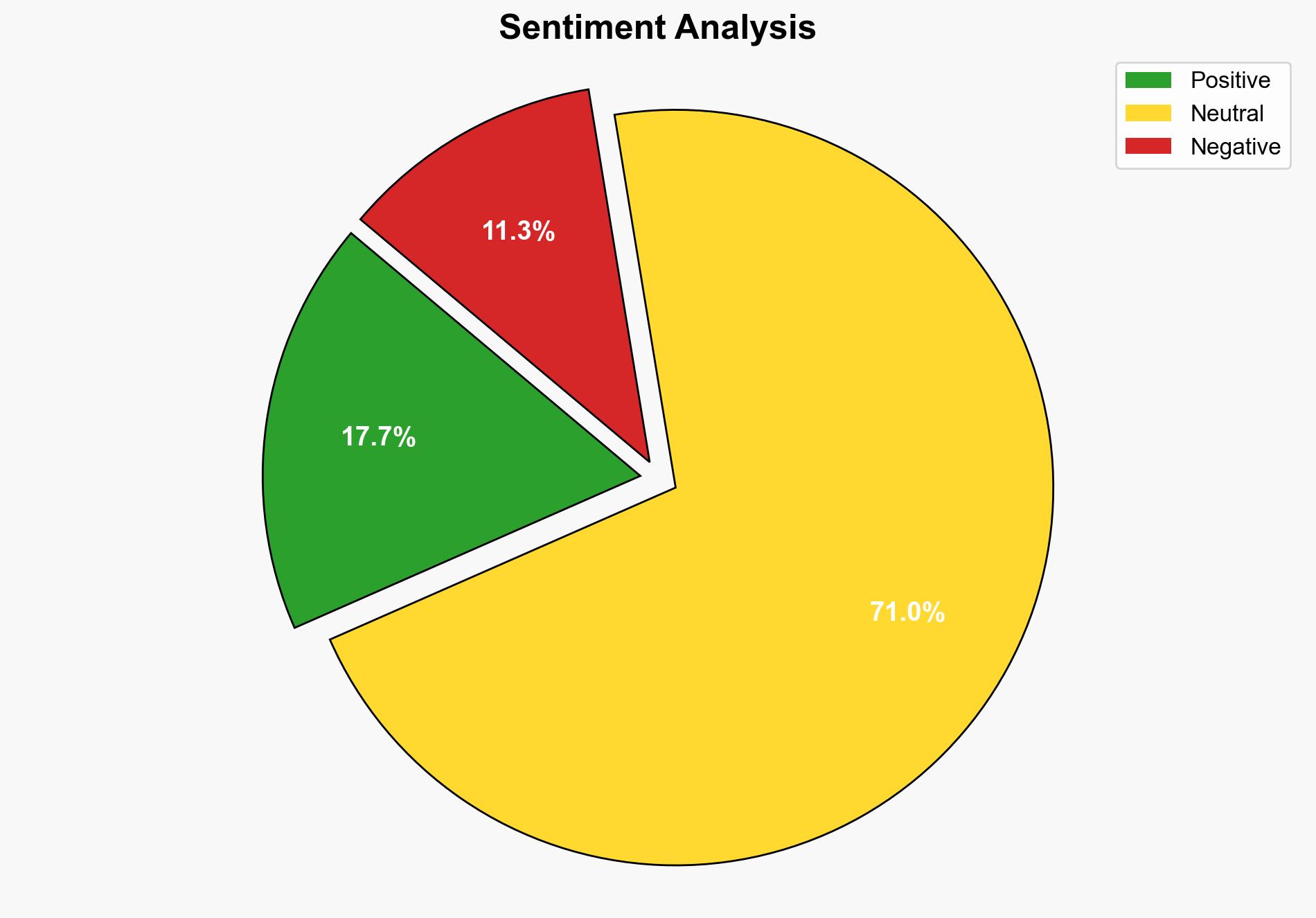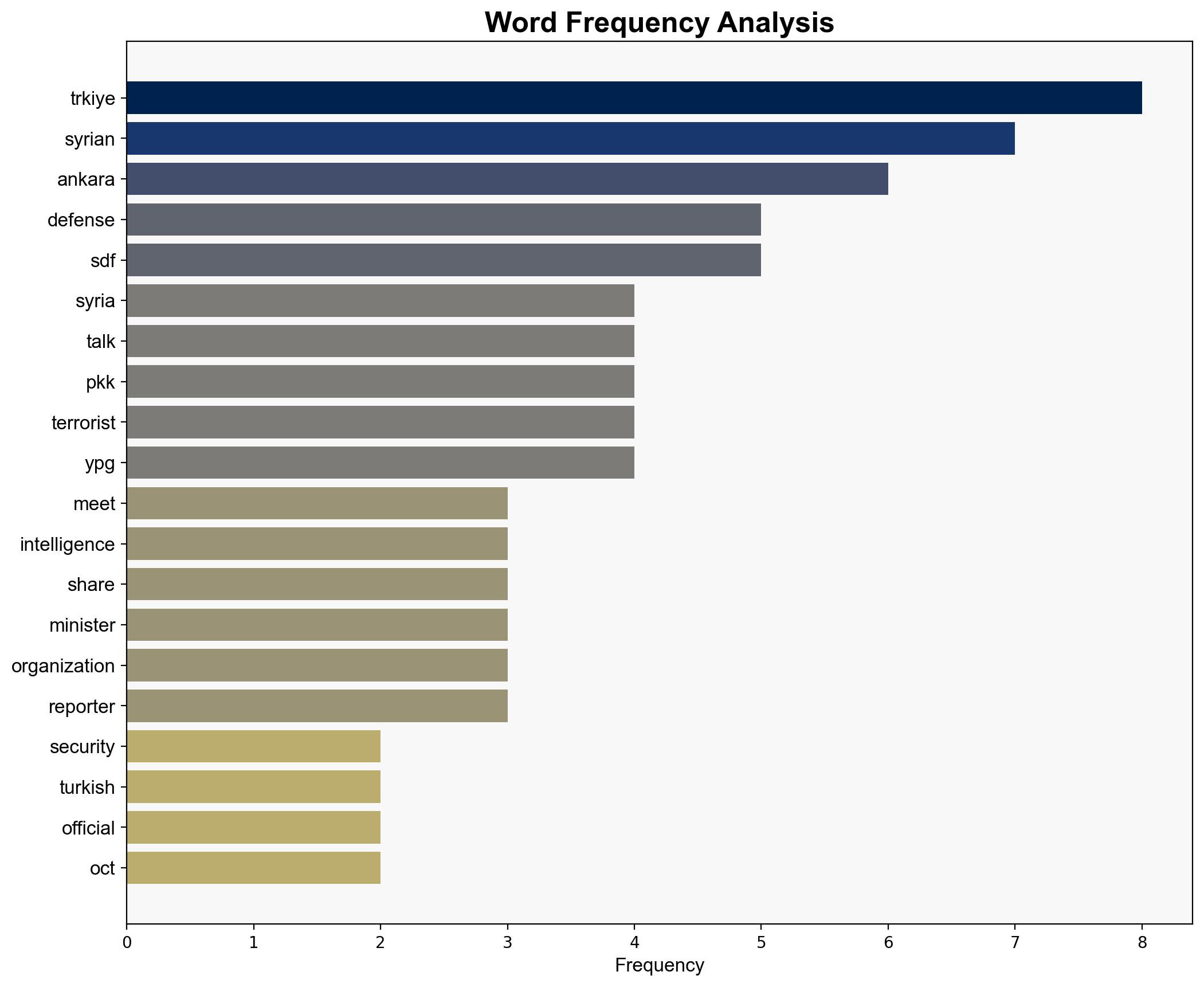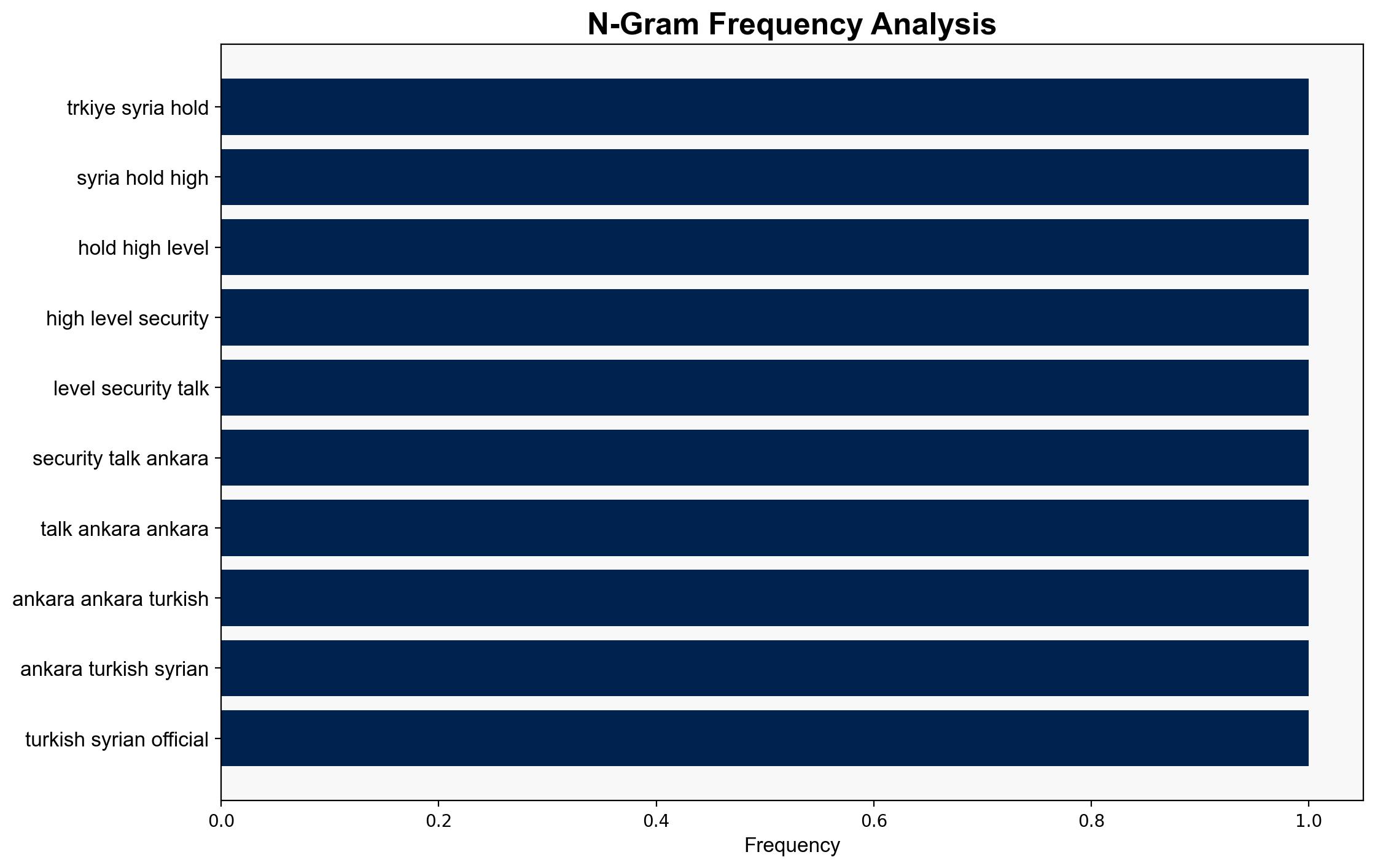Trkiye Syria hold high-level security talks in Ankara – Hurriyet Daily News
Published on: 2025-10-12
Intelligence Report: Trkiye Syria hold high-level security talks in Ankara – Hurriyet Daily News
1. BLUF (Bottom Line Up Front)
The most supported hypothesis is that the talks between Türkiye and Syria aim to solidify a cooperative framework to counter shared security threats, particularly focusing on the PKK and its affiliates. The strategic recommendation is to monitor the implementation of agreements and assess the impact on regional stability. Confidence level: Moderate, due to potential underlying geopolitical complexities and historical tensions.
2. Competing Hypotheses
1. **Hypothesis A**: The primary objective of the talks is to establish a robust security partnership between Türkiye and Syria, focusing on intelligence sharing and coordinated actions against the PKK and YPG, thereby enhancing regional stability.
2. **Hypothesis B**: The talks serve as a strategic maneuver by Türkiye to exert influence over Syria’s military and political landscape, potentially leveraging the disbandment of the PKK to gain concessions or strategic advantages in the region.
Using ACH 2.0, Hypothesis A is better supported by the explicit focus on security cooperation and intelligence sharing mentioned in the report, as well as the involvement of high-level officials from both countries. Hypothesis B, while plausible, lacks direct evidence in the current intelligence snippet.
3. Key Assumptions and Red Flags
– **Assumptions**: It is assumed that both Türkiye and Syria have aligned interests in countering the PKK and YPG. Another assumption is that the disbandment of the PKK will lead to a reduction in regional tensions.
– **Red Flags**: Historical animosities and potential hidden agendas could undermine the talks. The lack of detailed information on the implementation of agreements is a critical gap.
– **Cognitive Bias**: Confirmation bias may lead analysts to overestimate the success of the talks based on optimistic interpretations of the intentions of both parties.
4. Implications and Strategic Risks
– **Geopolitical**: Successful cooperation could shift regional power dynamics, potentially isolating groups like the SDF and altering alliances.
– **Security**: Enhanced intelligence sharing could lead to more effective counter-terrorism operations, but failure to implement agreements could exacerbate tensions.
– **Economic**: Stability in the region could foster economic opportunities, but ongoing conflict could deter investment.
– **Psychological**: Public perception in both countries may influence the political will to maintain cooperation.
5. Recommendations and Outlook
- Monitor the implementation of agreements and adjust diplomatic strategies accordingly.
- Engage with regional allies to ensure a unified approach to counter-terrorism.
- Best-case scenario: Successful cooperation leads to a stable and secure border region.
- Worst-case scenario: Talks collapse, leading to increased hostilities and regional instability.
- Most likely scenario: Incremental progress with occasional setbacks due to underlying tensions.
6. Key Individuals and Entities
– Hakan Fidan
– Yaar Gler
– Ibrahim Kaln
– Asaad Al Shibani
– Murhaf Abu Qasra
– Hussein Al Salama
– Haluk Grgn
7. Thematic Tags
national security threats, counter-terrorism, regional focus




